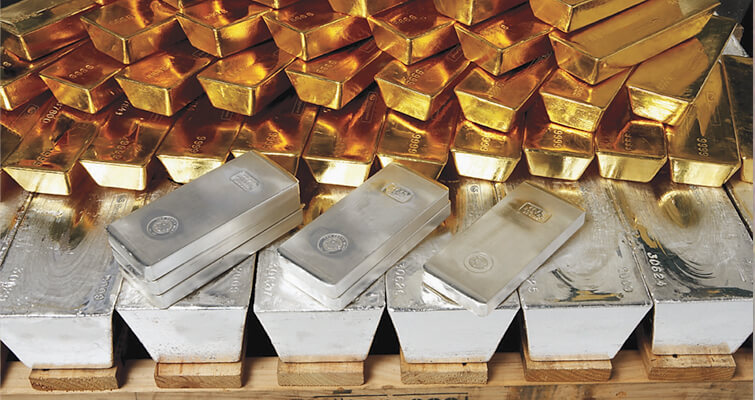
In 1997, silver bullion, as well as gold bullion and platinum, was approved as investments for American IRAs. Before that time only the gold and silver Eagle coins were approved for IRA holdings. This was excellent news to investors who enjoy investing in silver because the premiums on the American Eagles are often very high, certainly higher per ounce than silver and gold bars. Silver bullion bars and rounds are generally closer to the spot price per ounce, especially if you invest in larger amounts.
The coins approved for IRA investments generally must be at least 99.5 percent pure gold and 99.9 percent pure silver and be legal tender. Silver bullion pieces contain .999 pure silver, making them an excellent investment. In addition to silver bullion, silver Eagles are specifically approved for use as IRA investments. Currently minted silver Eagles can carry very high premiums, but those from previous years are often less expensive.
Due to limitations in the amount which can be invested in tax-deferred IRAs, you may want to purchase 100-oz silver bullion bars or silver coins for holding in your IRA. Silver Eagles are the only U.S. silver coin specifically mentioned, but due to their silver content, the Canadian Silver Maple Leaf may be used as an investment for the IRA. Any silver coin, not .999 pure silver definitely cannot be held in an IRA.
Other Precious Metals as IRA Holdings
Gold bullion and gold Eagles are also allowable for an IRA. Any gold product must be at least .995 pure gold and be legal tender. Using this standard the gold Canadian Maple Leaf, Australian Kangaroo, and Austrian Philharmonics are allowable holdings. Gold bullion bars can be held but generally require a larger investment than silver bullion.
Platinum and palladium may also be used but many investors are wary of these as IRA investments because, until recently, they have only been used for industrial uses. There are now platinum coins available but they are not circulated as currency.
IRA Assets in Held Trust
Whether precious metals or not, assets held in an IRA must be held in trust by an authorized trustee. A trustee is a third party authorized for such holdings and is usually a bank, securities company, or other financial institution. The trustee must be the entity purchasing the asset and be able to accept delivery and store the physical assets. The depository must be in an approved location usually a bank vault or precious metals depository.
For a further guide to IRA/401K rollover rules and regulations look to the link in this line<<<>
